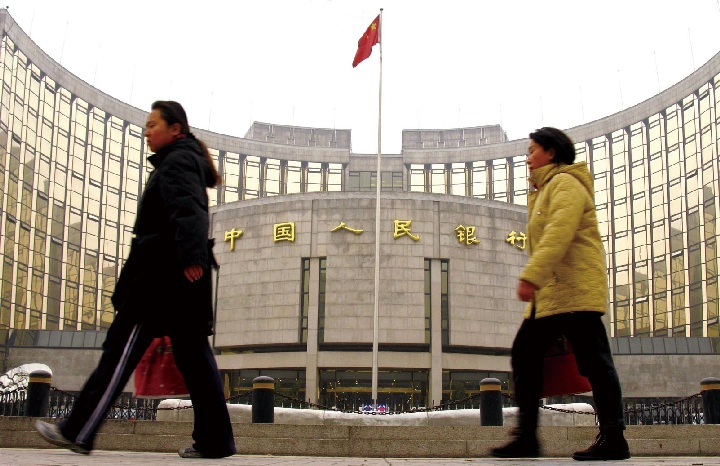.jpg)
The Chinese economy is slowing down faster than previously thought. However, experts say Beijing is not left with many options.
Beijing continues to maintain a growth target of 7.5 percent for 2012, 0.5 percent lower than the historical target of 8 percent. Anything below the 8 percent level was feared to trigger mass unemployment and cause nation-wide social unrest in the world’s second-largest economy.
Analysts have been predicting the economy would bottom out in the second quarter of 2012, before rebounding in the final six months, but data released in mid-May indicates that the slowdown may be more intense and lasting according to Channel News Asia.
"It's quite worrisome, and worse than before. It increasingly looks like we're seeing a very broad-based slowdown," said Zhou Hao, an analyst with ANZ Bank in Shanghai.
"We will definitely see more reserve ratio cuts in the coming months, and there may also be more spending."
On Saturday, 12 May, China's central bank stepped in to reduce the amount of cash banks are required to keep in reserve for the third time since last year. The majority of market experts interpreted this move as Beijing sending signals to the market; show its willingness to loosen policy in light of the significant economic activity slowdown.

This move came after Friday, 11 May, showed the output of the country's millions of factories and workshops hit a near three-year low in April, with imports virtually flat, showing a stagnant local economy according to Channel News Asia.
On Tuesday, 15 May, there was news that investment from crisis-battered Europe tumbled nearly 30 percent this year from the same period a year ago, adding to the gloom. From an external market demand perspective, China does not stand a good chance.
Who can Beijing lend to? Not too many
While another cut in the RRR is expected by market experts, its effectiveness is uncertain.
"There is not much the government can do," said Andy Xie, an independent economist based in Shanghai.
"Even if they reduce the required reserve ratio again, who are the banks going to lend the money to? Banks use land as collateral, and when the price of land goes down the way it does now, the amount of loans goes down too."
There are two more widespread criticisms: 1) Beijing was too slow in reacting to the cooling
2) More assertive loosening will fuel higher prices similar to what happened after the 2008 global financial crisis.
"The government will be more cautious than in 2008, because of the problems it created then, especially in the form of inflation," said ANZ's Zhou.
Inflation slows down for now
China's inflation rate slowed slightly to 3.4 percent in April, down from 3.6 percent a month earlier. This will give Beijing greater leeway to ease policy to boost the economy, explains AP news.
April's moderation in the consumer price index was aided by an easing in costs for food and housing. Food price inflation slipped to 7 percent from 7.5 percent in March.
Meanwhile, the producer price index of costs for manufacturers fell 0.7 percent. That largely resulted from falling commodity prices, but could ease future price pressures according to AP News.
However, wages and rental prices are rising over the longer term, noted ANZ in a commentary.
"We remain cautious on China's inflation outlook. Price reforms will continue to add pressure to China's structural inflation," it said, adding that "for the foreseeable future we expect to see significant increases in utility prices such as water, electricity, and fuel."
.jpg)
The National Bureau of Statistics announced on 11 May that China's economy grew in the first quarter by its slowest pace since 2009. Also, import and export growth slowed in April, leading to increased pressure on the government to implement further monetary easing.
Imports in April rose just 0.3 percent (USD 144 billion) compared to a 4.9 percent (USD 163 billion) increase in exports, adding to the fears that the world's second-biggest economy is not doing enough to stimulate domestic demand and counter a slowdown.
“Beijing’s mind-set is still stuck somewhat in its socialist past”
Beyond the immediate crisis, China needs bolder and more comprehensive reform of the economy according to Xie. This will require Beijing to grow out of its socialist past and move towards a more market driven economy.
"What China needs are structural reforms. The government needs to improve efficiency by reducing the state sector. The state sector is too big, and it is wasting tremendous amounts of money," he said.
"A lot of the growth right now is just waste. The government needs to have another attitude. It needs to change. Otherwise the problems will just mushroom."
By Hyuk-tae Kwon